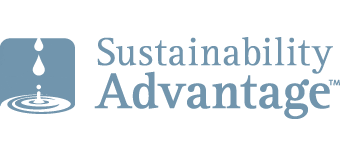A Wild and Crazy Corporate CSR Idea: Pay Your Taxes

Ahhhh, April. Finally spring is arriving – the time when a young man’s fancy turns to love … and the rest of us think about taxes. Damn. Here’s a wild and crazy corporate CSR idea, pay your taxes!
No one enjoys paying taxes. You don’t. I don’t. Companies don’t either. But it’s our civic duty. Without tax revenues, governments cannot provide us with the health, education, safety, security, and infrastructure services that are vital to our well-being in a flourishing society. Taxes are a necessary and a good thing. Corporate taxes are vital.
However, over the past 50 years, the share of tax revenue coming to the federal government from business has collapsed. According to the U.S. Tax Policy Center, corporate taxes represented 32% of U.S. federal government revenues in 1953; 23% in 1966; 12% in 1998; and 9% in 2010. There seems to be trend.
Corporations use three ways to reduce their tax bills. First, they use smart legitimate tax planning and take advantage of all legal tax deductions. That’s okay. Second, they may use “aggressive” tax avoidance schemes to bend the rules and gain an unethical tax advantage. That’s very iffy. Third, they may practice illegal tax evasion. They deliberately omit, conceal, or misrepresent information in order to reduce their tax obligations. They exploit tax loopholes such as transfer pricing schemes, shifting profits to low-tax havens, creating offshore subsidiaries and shell companies, using digital technology to flip money to the most advantageous tax jurisdiction, and other forms of fiscal evasion. That’s a no-no.
Unfortunately, tax evasion by wealthy corporations and individuals has become rampant. According to the Tax Justice Network: “Contrary to quite widespread popular perception, the offshore phenomenon of tax havens is not an exotic sideshow to global finance: it is now at the heart of the global economy. On some measures, half of all world trade passes – at least on paper – via tax havens. … The most comprehensive and authoritative single study of the size of the offshore system estimated conservatively that there is some $21-32 trillion in financial assets sitting offshore, largely untaxed, in conditions of secrecy.”
In fact, research by the Tax Justice Network shows that tax evasion costs governments around the world more than $3.1 trillion in lost tax revenue annually. In Canada an estimated $81 billion a year is lost to tax evasion in the ‘shadow economy.’ That is half of Canada’s total healthcare spending.
In the UK, Her Majesty’s Revenue and Customs (HRMC) performs a regular estimate of the “tax gap”, which is the difference between what it believes companies ought to be paying in corporation tax and what the government is actually receiving. In its latest estimate for 2011-12, HMRC put that figure at £4.7 billion. So what? £4.7 billion would have financed 25 new hospitals, 300 new schools, or 430,000 day care spaces. It would have covered the annual salaries of 153,000 nurses or 164,000 police officers. That’s an enormous amount of corporate social responsibility (CSR) support that corporations withheld from society.
Senior executives from Starbucks, Google, and Amazon were grilled by the UK Commons Public Accounts Committee in 2013. Starbucks had reported taxable profits in the UK only once in the previous 15 years. Google reported revenues in Britain of £395 million in 2011, but paid just £6 million in corporation tax. Amazon booked £3.3 billion in UK sales in 2011 but paid no corporation tax at all. Starbucks testified that it paid a royalty to its parent company in The Netherlands, which offset profits made in the UK. Google’s profits were registered in Ireland, and Amazon said its profits were all booked in Luxembourg. The Netherlands, Ireland, and Luxembourg are tax havens.
Tax evasion and the tax havens help wealthy corporations escape from contributing to the services that directly benefit them – from the health and education systems that support their workforces, to the roads that ship their goods to markets, to the courts of law that enforce their contracts, or to the police who protect their property. When tax avoidance and evasion becomes the new normal, we have a problem. Governments are so starved for revenues that are they are forced to make deep cuts in public spending in ways that hurt not only companies but the most vulnerable in society.
Corporations pride themselves on being socially responsible corporate citizens. Their annual corporate social responsibility (CSR) reports describe their worthy efforts to improve the social well-being of their communities. They often cherry-pick high-profile causes to support, like an annual breast cancer race, Movember contests, annual United Way campaigns, Christmas help at a local food bank, or sporadic tree planting. They assume that cash-starved governments will diligently look after messier issues, like potholes, bridges, homelessness, basic health care, police and fire protection, and quality education. That is an increasingly problematic assumption.
The crumbs of social support that corporations provide through their CSR initiatives don’t make up for the tax cake that they are withholding from governments. Basic social services are jeopardized because corporations are not paying their fair share of taxes. I humbly propose a breakthrough idea for the most effective corporate CSR program on the planet: pay your damn taxes.
Please feel free to add your comments and questions using the Comment link below. For email subscribers, please click here to visit my site and provide feedback.
Bob




Comments are closed.